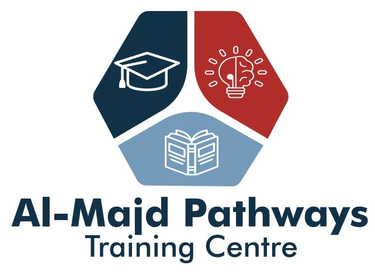
Engineering Oil & Gas Technical Proficiency for Non-Technical Experts
£12800.00
INTRODUCTION
In today's fiercely competitive market landscape, non-technical professionals must acquire and enhance crucial skills that will elevate their technical acumen in the Oil & Gas sector. Simultaneously, they need to augment their overall knowledge base to better serve their respective organisations.
The Oil & Gas Technical Proficiency for Non-Technical Experts course provides a comprehensive introduction to this intricate industry, which plays a pivotal role in modern life. This training course not only delves into fundamental production concepts but also encompasses essential upstream knowledge, geology, the origins of oil & gas, transportation, storage, refining, and petroleum product sales and marketing. Additionally, the course covers ownership and land rights, surface operations, production strategy development, and project economics.
Participants enrolling in this training course will cultivate the following competencies:
Gain foundational insights into the formation of oil and gas
Recognise the significance of reserves' location versus market location
Stay updated on modern petroleum exploration techniques
Familiarize themselves with the latest advancements in refining and storage
Enhance their ability to provide improved service to their customers
Appreciate the impact of geopolitics on oil transportation and pricing
Strengthen their company/department's competitive standing in the market
Contribute to optimising their organisation's daily operations and activities
TRAINING OBJECTIVES
This training course aims to help participants achieve the following objectives:
Obtain a comprehensive overview of the Global Oil & Gas Industry, spanning from discovery to production to consumption
Gain insights into the intricacies of refining processing
Understand the primary applications of oil and gas and their significance in the global energy landscape
Appreciate the roles played by various entities in the oil and gas sector, including governments, oil companies, service providers, regulators, external bodies, and more
Comprehend the objectives, functions, and commercial relationships within the upstream and downstream oil and gas supply chain
Grasp the Geopolitics of Oil and Gas and confront major challenges facing the energy sector
Explore the future of the oil and gas industry
WHO SHOULD ATTEND?
The Oil & Gas Technical Proficiency for Non-Technical Experts course caters to a diverse audience within the petroleum industry and will be particularly beneficial for:
Newcomers to the Oil & Gas sector
Aspiring petroleum engineers and geologists
Professionals from financial, marketing, legal, and other backgrounds interested in the industry
E&P service company personnel seeking insights into their clients' roles
Graduates seeking a comprehensive understanding of the industry
Professional advisers and business consultants
TRAINING APPROACH
This training course will blend informative presentations with interactive discussions guided by instructors, encouraging participants to relate the content to their own workplace experiences. Practical exercises, video materials, and case studies will stimulate these discussions, ensuring maximum benefit for all attendees.
TRAINING OUTLINE
Day 1: Overview of the Oil and Gas Industry
Introduction to and overview of the Oil & Gas Industry
Global petroleum reserves, supply, and demand
The nature and formation of fossil fuels and oil reserves
The Sedimentary theory of oil and gas formation
Characteristics of fossil fuels
Crude oil assay and properties
Product properties and specifications
Day 2: Hydrocarbon Location, Geology, and Exploration
Hydrocarbon Location, Geology, and Exploration
Hydrocarbon Traps and trapping mechanisms
Petroleum Exploration methods and Seismic Surveys
Drilling the Well and Drilling Technology
Casing and Logging the Well
Reservoir production mechanisms
The Technology of Offshore Drilling
Day 3: Fiscal Regimes - Hydrocarbon Ownership
Introduction to tax and royalty schemes
Fiscal Regimes / PSA JV’s,
Concessions and licenses
Impact of oil price fluctuations on fiscal take
Lifting and production costs
Reserve estimates and location
Day 4: Crude Oil and Natural Gas Treatment & Storage
Oil, Gas & water Separation Processes
Produced Water Generation and Management Practices
Crude oil stabilization
Natural gas processing and commoditization
Oil and gas transmission and pipeline specifications
Petroleum and petroleum product storage
Tank gauging and Fiscal Metering
Transportation and Sales
Day 5: Oil and Gas, Mid and Downstream Activities
Crude Oil Refining Processes
Refining complexity
Refining profitability and netbacks
Petrochemicals, adding value
Time value of money
Key Performance Indicators
NPV, IRR, DPIR, UTC, Payback
Discounting and non-discounting methods
Course review and conclusion
Certificate of Completion: Upon successful completion of the course, participants will receive a Certificate of Completion from Al-Majd Pathways Centre (APC).
Get in touch with us today.
Follow
Sign-up for our newsletter
0044 7466410010
©2025 All rights reserved.
